- Home
- Brian Hodge
Hellboy: On Earth as It Is in Hell Page 11
Hellboy: On Earth as It Is in Hell Read online
Page 11
"Nice cozy little cabins down there and I bet you haven't even seen one yet."
"I don't do cozy," he said.
She tipped her head back for a long, sighing look toward the day's few clouds. "If it wasn't for the constant threat of death, this really would be the life." Now a peek over at him. "Clear skies, I assume?"
"Unless you count the gull that nailed Abe. Heard him say a couple words I didn't even realize he knew."
She laughed. "Sorry I missed that. He's normally so unflappable." Coffee next, and lots of it. "I'm glad everything's been quiet. Some secret weapon I've been since last night, huh?"
"You gotta sleep sometime. You're only human."
"Rub it in, why don't you."
She sank down deep in the chair and stretched out, legs long inside the gray sweatpants she was wearing, and kicked her feet up onto the railing. He gazed at them for a few moments, and they seemed so small, childlike almost, and in the moment he found it hard to associate them with a person that harbored the kind of power she did, something so apocalyptically destructive. Although there were many at the BPRD--and for now Liz was one of them--who had come to believe that she was not its cause, but merely its conduit. That the fire was a living element that existed, if not quite a part of her, not apart from her, either.
A fine distinction, maybe, but an important one.
"Tell me something." She glanced around at the yacht. "Am I totally off base in the feeling I've been getting that this, umm, charter operation isn't completely on the level?"
"What gave you that idea?"
"They leer," she said. "I mean really leer."
"At you, you mean...?"
"Yes, at me. A couple of them anyway. It doesn't seem like it would be good for business if your boat is crewed by guys who can't keep their eyes in their heads. But there's something greedy about it, too. A hey-wouldn't-she-fetch-a-nice-price kind of leer."
He had to take a few moments to think about the right thing to say here. Offer to have a few words with Bastiaan? Not on your life. With Liz, you didn't offer to intercede on her behalf as though she were some helpless little thing in need of rescue. Because she was anything but, and would resent the hell out of him for the rest of the day and probably tomorrow. Couldn't just dismiss it, though, because then she would think he didn't care.
Then he had it.
"It would be almost worth it to see them try you," he said...and yes, it was just the right thing. "Anything else, or is that your sole evidence against them?"
"Plus when I was down in the galley getting ready to make coffee, I opened the wrong cabinet door and found a suspiciously large number of Rolexes."
"It really is a charter boat. The last I heard, it goes for $3700 a day during peak season," he said. "But Bastiaan has...sidelines, I guess you'd call them."
"I figured as much."
"You don't sound disapproving."
"Well, I really wanted that coffee something fierce." She shrugged it all off. "Underneath the spookshow trappings, what is the bureau, anyway, but another intelligence agency? Isn't the first rule of the intelligence business that sometimes you have to deal with some shady people?"
"I think the first rule is don't get caught, but the other probably comes in a close second."
"So how do you know these people, and how is it that they apparently dropped everything to come to our aid as fast as they did?"
"Bastiaan, he's the only one I know. I never met the other guys," Hellboy said. "The boat, the business...the sidelines...all these were things that got passed down from father to son. Along with an obligation."
"So you two go back a long way, then."
"He was just a boy then. Really close to his old man--Zosimo was his name. So the obligation, there was never any doubt that Bastiaan would honor it. I kept in touch with him enough over the years that he had to know I'd hold him to it one day. I knew he was in Naples, so the time finally came."
"You're worse than the Godfather sometimes, you know?" she said. "What was the link?"
It all went back to a rogue archaeological dig near the site of Catal Huyuk, in Turkey, he told her. More than thirty years ago. Catal Huyuk dated back around 8500 years, making it one of human civilization's oldest known cities. The BPRD knew of at least three cities that were far older, although not by the quantifiable means that kept orthodox archaeologists happy.
The rogue dig had been financed by an Algerian businessman, and through means that the BPRD had never been able to discern--after things went wrong, he'd made himself as inaccessible as a despot--the man knew approximately where to dig, but not exactly what he would find. And indeed, in less than two weeks the site had yielded one of those items the earth periodically coughs up--artifacts that, according to traditional learning, should not be where they are found, or should not be at all. In this instance, it was a statue that stood over seven feet tall, carved from a substance that was, while not identical with, every bit as mysterious as Hellboy's hand. It appeared to represent some unknown life-form, rendered in a triumphal pose that was as majestic as it was grotesque, even if it bore no resemblance to any known anatomy.
It had been crated and, in violation of the Turkish laws concerning indigenous antiquities, had been trucked to the coast, where the Calista awaited, Zosimo Karabachos having been hired to transport the thing to Algiers. At which point, as far as anyone knew, it would join the private collection of the man who had paid handsomely for its recovery.
Except they'd never made it. Throughout a long night in the deep waters south of Greece, the crate had been opened by hands unknown, and some of the statue's limbs--if they could accurately be called that--had detached from the main body to graft themselves onto the bodies of the crew. Zosimo had described seeing one of his men curled against the stern, wracked by violent spasms as parts of his body began to solidify with spreading veins of the same stonelike substance that had comprised the artifact.
Soon after, it had begun to work on reshaping his bones.
The crewman had smiled throughout, though...smiled with a beatific radiance and, with the ardor of a prophet, spoke of the frozen perfection of dead worlds. Until his tongue, too, turned to stone in his mouth, and so, wordlessly, he had begun to sing. The sound of it, the ferocious joy of it, had driven Zosimo to find first a filleting knife from the galley, and then the softer parts that still remained in his crewman's body.
He had long since locked Bastiaan, then just eleven years old, down below, where he'd been trapped after another of the crewmen grew solidified and malformed over the companionway entrance, like a misshapen latticework of unbreakable stone.
Zosimo had pushed the Calista as far as the southern tip of Malta, where he sought refuge in the fishing village of Birzebbuga...and was quickly quarantined on the beach by the normally welcoming locals once they'd gotten a look at his cargo and what remained of his crew.
And it was from here that an old colleague from England, on Malta to study the Neolithic temples of nearby Hagar Qim, had called in Professor Trevor Bruttenholm. One of the founders of the BPRD, and the man Hellboy had gladly called Father.
"It was one of the first times I'd seen him work," he told Liz. "I mean really work. Not just academics and research. Fieldwork, the dangerous stuff. It'd already been, what, twenty or so years since I'd come into the world and he'd taken me in...helped raise me, train me. But this was something new to see. This could've killed him."
There was no single word for what Professor Bruttenholm--tall and slender and in nearly all respects the quintessentially proper Englishman--had performed at the southern tip of Malta. It was a hybridized working of his own devising, equal parts exorcism, banishment ritual, and shamanic journey. It had been a spiritual combat that required days before the statue's spreading contagion had been contained and then reversed, yet even then all but one of the afflicted crewmen had perished.
But Zosimo's son Bastiaan had been spared. A debt that the elder had vowed would not go unpaid, no ma
tter how long it took.
"The way he was," Hellboy said, "I don't think Professor Bruttenholm ever had any intention of collecting. For him, what he learned from the experience...that's what he considered payment."
Two years dead now, he was. A respectful enough time to wait before calling in old markers on the favors the great man was owed.
Two years dead, and still there were days when Hellboy missed him so much he could just about feel the pain of it all the way into his big right hand.
"What happened to the statue?" Liz asked. "Is it down in the basements back in Fairfield with all the other oddities?"
When she was a kid, Liz used to joke that the bureau could hold the scariest yard sale in the world.
"Nah," Hellboy said. "There's nothing left. I don't know why...but it rotted. Just like a big frozen beef carcass left out in the sun."
"Yum," she said, and drained the last of her near-bucket of coffee. "Who's ready for breakfast?"
During those times when Liz decided she'd had enough of bureau life and struck out for parts unknown, he didn't know which was worse: his dread that something would happen to her, or maybe because of her...or the fact that he was once more missing out on times like this. Talking about things that the average person had never seen, never experienced, could never even relate to.
You needed that to keep yourself sane, to remind you that no matter how deep the darkness, you still shared the light with someone. Professor Bruttenholm had always been good for it. Abe too. Nothing against them. But sometimes you didn't need a surrogate father, a surrogate brother. Sometimes you needed a Liz in your life, the surrogate sister in the family you'd gathered about yourself.
No question about it: Whenever she wasn't around, while this world may still have had its wonders, its beauties, they seemed dimmed and diminished.
"With everything that's been going on since you came in last night," he said, "I didn't get much chance to ask how your project's going back in Fairfield."
"My project?" Liz gave him one of those looks that she sometimes turned on him whenever she found his choice of words to be less than optimal. "My project has a name. Campbell Holt. Remember him? He's the one whose wrists aren't as durable as yours."
"Sorry," he said. "I just forgot his name, that's all."
"He's...coming along well. He's getting a handle on it. Controlling it, not letting his quote-unquote gift control him. Slow steps, but he'll get there."
"Sounds like somebody else I used to know."
"Did you know they've offered--more than once--to fit him with a prosthetic for the hand he cut off? He doesn't want it. He says he'd rather look at the stump every day, because he wants a constant reminder, in the starkest possible terms, that he's got to remain in control. I admire that. It'd be like if I wore a glass locket around my neck that was filled with ashes from the neighborhood where I grew up."
She tipped her head back as though it had suddenly doubled in weight.
"I need this, H.B. I need this to work. I know what it's like to be on his side of the desk...or the straitjacket...and realize that the person who thinks they're helping you doesn't have a clue what it's like to be in your skin. So when I think of the difference in the way Campbell looks now compared to the way he looked a few weeks ago when I first visited him in the hospital...I see that change in him and I know that it's something I helped to make happen. It's something I helped build instead of burn."
Liz looked across at him, eyes so open it was like he could see all the way to the bottom of a well...a Liz filled with renewed purpose. With a familiarity both idle and tender, she slapped her hand atop his right one. Left it there as she turned her gaze once more toward the sea and the sky.
"If I can help him get to the place he needs to be," she said, "everything I've been through...maybe it'll seem like it had a purpose after all."
He watched her hand. Tried to feel its touch, so light, deeper than he really could.
Chapter 11
The man in the cage hadn't said a word for the first three days, but finally let the wall of silence between them start to fall when Gino Laurenti sat down on freedom's side of the bars and poured them each a glass of wine. He reached between the bars and set the glass onto the rickety wooden table--peace offering, or just something to break three days' monotony of water--and was pleased to see their captive wander over and accept it, and take a long, appraising drink.
"Amarone?" he asked, his first word since they'd taken him at the osservatorio.
"From Veneto, yes," Laurenti said.
"Ah...they know how to make it there." He nodded, saying no more until he'd made it halfway through his second glass, although it was not the wine speaking. The man drank so slowly it seemed likely he could keep his wits about him indefinitely.
"You have lost, I want you to know this," Laurenti told him. "The scroll is out of Rome now. It will be safe for as long as it needs protection. From you. From all of you, the Opus Angelorum. From what you would wrongly summon down in the name of God. It is safe."
The man in the cage laughed, not a pleasant sound to hear, but neither was it at Laurenti's expense. "I doubt that very much. Once they are out in the world, things like this have a way of attracting attention no matter where they go."
This place where fate had brought them had been a zoo once, a private zoo for the enjoyment of a wealthy merchant some four centuries dead. Today, few knew of it at all. Laurenti stared at the stone floor where something large would have paced long ago--a lion, maybe, or a bear--and felt defiled by what he had to say.
"If you continue to refuse to say anything of those you work with, some of those I work with want you tortured. I condemn it, and don't want any part of it...but I'm afraid I would be unable to stop it."
For all the concern he showed, the man in the cage may as well have just been told it looked like rain. "Let them."
"They would not always have reacted this way," Laurenti went on. "But the fire has changed everything."
He almost sneered. "Not changed enough, if the scroll is safe."
His name was Verdi, they had learned. Domenico Verdi. He was big enough to have fought when, quickly and quietly, their men took him outside the osservatorio, but he had chosen not to resist. He was a tall man with broad shoulders and an even broader belly, and wide hands that would look more natural raising bruises than dispensing Holy Communion. Long-ago bouts of acne had left his meaty face with a pitted look, and his black hair, unwashed for days, bristled into ferocious tufts.
He had no parish. His ministry was with a hospital for the poor, tending the dying and the insensible, and indeed, it was said they were the only ones who could bear his company.
From a nearby crate, Laurenti fetched a long, loosely woven garment of barbed wire loops fitted with a simple metal latch. A piety belt, some called it. Two nights ago, he had laid the ugly thing out flat on a tabletop and counted the barbs--two hundred and sixty prickly points that would turn inward when the belt was fastened about the belly.
He dangled it before the cage bars. Watched Verdi's eyes follow its sway and thought he saw a flash of yearning.
"I suspect you must be no stranger to pain," Laurenti said.
It appeared that the Opus Angelorum had abandoned the osservatorio because, after centuries of guarding their secrecy, they somehow knew that those who opposed them were closing in. Yet Verdi had risked everything to come back for this. Had been captured carrying it from their ritual space, a museum full of such ghastly devices.
Now he appeared to force his eyes away from the belt, to deny its allure. "I was a weak man."
"The ones I spoke of, the ones who intend to see you talk...I'm afraid their methods will be worse."
"I welcome it," said Verdi. "Let them do all those things I never had the courage to do to myself."
And it was obvious that thoughts of what could happen to him meant nothing to Verdi. Laurenti got up to put some distance between himself and the cage. There was plenty of r
oom to wander in this decrepit hall of bars.
After all this time, did anyone with whom he worked even remember how this place--the zoo and the estate to which it belonged--had come into their hands? But it had ever been thus in Rome, where power, politics, and papacies mixed so freely. He could not imagine a time in the Church's history when there had not been strange alliances born of shared ambitions, and property bequeathed so that one faction or another could further common goals.
One group seeks to harness the destructive power of angels and is given an observatory. Another finds their aims obscene and is left an old estate near the Tiber. Dramas to be played out long after their original players were dust in the ground. Because here they thought beyond the lifetime of any one man or woman...or at least they used to. What was a lifetime when you battled for the sake of eternity?
Laurenti ran his fingertips along the cracked and flaking mural painted on the wall opposite the row of cages. The old Peaceable Kingdom motif--lambs lying down with lions, and antelopes with bears. Osprey and eagle, salmon and dove.
And now that he was talking, Verdi, standing pressed against the bars, seemed intent on pursuing him. "You seem like a caring man," he called out. His voice slapped down the corridor along the stone and plastered walls. "But you do poor service to your Lord and Savior when you work so closely with those who seek to discredit Him."
Laurenti paced back toward him. "I also like to think I can serve truth, wherever it may emerge, and that the two are not enemies," he said. "Is your faith so narrow that the possibility of a little public debate over an ancient letter makes it so easy for you to kill your brothers?"
"Not brothers...traitors. Heretics."
"Not the seven who died in the Archives. Their only sin was being in the wrong place at the wrong time."
"Then for them the word is martyrs."
How did a man become so twisted? There was a time when Laurenti thought such a thing happened to a man too apart, too alone. Not anymore. Now he knew better. That it happened more easily in groups.

 The Weight of the Dead
The Weight of the Dead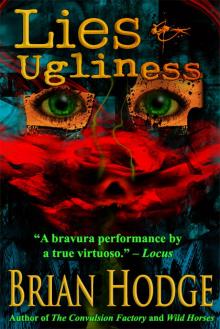 Lies & Ugliness
Lies & Ugliness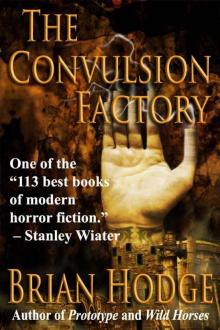 The Convulsion Factory
The Convulsion Factory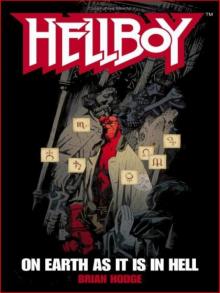 Hellboy: On Earth as It Is in Hell
Hellboy: On Earth as It Is in Hell Whom the Gods Would Destroy
Whom the Gods Would Destroy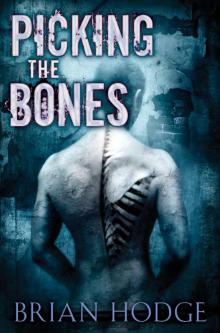 Picking the Bones
Picking the Bones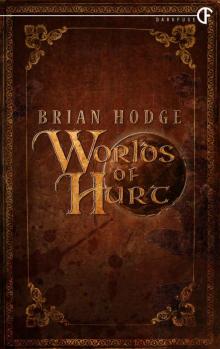 Worlds of Hurt
Worlds of Hurt Oasis
Oasis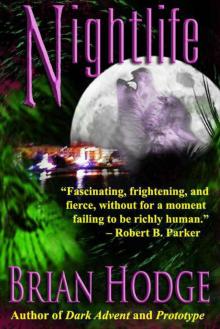 Nightlife
Nightlife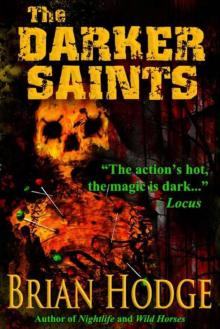 The Darker Saints
The Darker Saints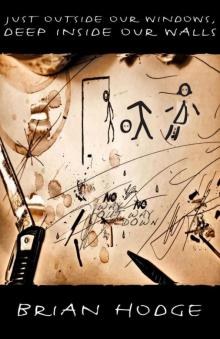 Just Outside Our Windows, Deep Inside Our Walls
Just Outside Our Windows, Deep Inside Our Walls A Haunting of Horrors, Volume 2: A Twenty-Book eBook Bundle of Horror and the Occult
A Haunting of Horrors, Volume 2: A Twenty-Book eBook Bundle of Horror and the Occult Dark Advent
Dark Advent Mad Dogs
Mad Dogs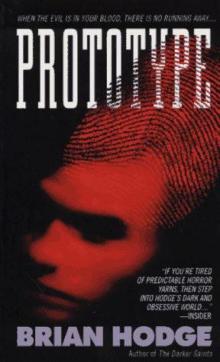 Prototype
Prototype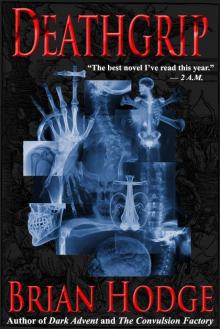 Deathgrip
Deathgrip Falling Idols
Falling Idols